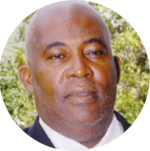
There is a developing phenomenon in our region for institutions and councils to make rash decisions without the participation and proper consultation with the countries that keep them ‘alive’.
By rash I mean quick, sudden, reckless, careless, unwise and without thought about what might happen.
Firstly, it was the Caribbean Development Bank which took the decision to place Dr. Hyginus ‘Gene’ Leon, President of the Caribbean Development Bank on Administrative leave.
Now, the CDB is a multinational Organization, meaning that it is an institution that involves different countries of the Caribbean region.
But what is more troubling, is the fact that the reasons behind the CDB’s decisions to put Dr. Leon on leave have not been disclosed.
Indeed, this is utter disrespect to Dr. Leon and St. Lucia as a participating country.
Now, we must remember that Saint. Lucian Sir Arthur Lewis was the first president of the Caribbean Development Bank (CDB). Dr. Leon is continuing the legacy of his fellow St. Lucian, Sr. Arthur Lewis.
Dr. Hyginus Leon has since offered his resignation to the Caribbean Development Bank.
Indeed, I haven’t heard or read of problems being encountered by the CDB regarding the performance of Dr. Hyginus Leon. And no such communication had been received by the Government of St. Lucia.
So, it is fair to say that the decision to put Dr. Leon on leave was high-handed.
Indeed, we come now to the Caribbean Examinations Council (CXC).
The Caribbean Examinations Council (CXC) is an examination board in the Caribbean. The CXC was established in 1972 under agreement by the participating governments in Caribbean Community, including Saint Lucia.
CXC is the examining body that provides examination certification in 16 English speaking Caribbean countries and territories and has replaced the General Certificate Examination (GCE) used by England and some other members of the Caribbean.
Now, the current chairman of the Caribbean Examination Council is Professor Hiliary Beckles. Professor Beckles was re-elected by council at a meeting held on 8th December, 2023 in Guyana. Professor Beckles’ appointment is for a three-year term 2024 to 2026.
Incidentally, a St. Lucian Professor Hazel Simmons-Mc. Donald is the Chair of the Review Committee of the Caribbean Examinations Council. Professor Mc. Donald is not new to tertiary education having taught at the then “A Level” College in the early 1970s.
Now Professor Beckles is an experienced historian. He knows the history of the Caribbean very well. In an address to the Council sometime after his re-election in December 2023, he addressed the Caribbean Examinations Council at a special session.
Indeed, he informed his listeners that the Caribbean Examinations Council emerged in the 1970’s within the context of divisiveness within our region. Whatever that means! He insisted that at that time, our region was still attached to a colonial ‘scaffold’. Very simply, a scaffold is a structure used to get to the top. Scaffolds are used commonly in building construction. Professor Beckles went on to say that the ‘colonial ethos’ held back the advanced trajectory of where the region wanted to go in the arena of education.
Now considering that trend of thought espoused by Professor Beckles, what has the Caribbean Examinations Council done under his chairmanship? Council has suspended the following subjects: Green Engineering, Agricultural Science; Double Award; Mechanical Engineering, and Electrical and Electronic Engineering. The main reason for the suspension is that there was low enrolment in the aforementioned subjects; meaning that few students took those subjects.
Indeed, where does the Caribbean region want to go? Let us take Agriculture. The Food and Agricultural Organization (FAO) an agency of the United Nations, has as its main objective, “eliminating hunger and improving nutrition and standards of living by increasing agricultural productivity. The goal of the (FAO) is to achieve food security for all and make sure that people have regular access to enough high-quality food to lead active, healthy lives.
Now as a classroom teacher, I was trained and taught Agricultural Science for more that two decades. I taught the subject at a time when insufficient attention was being paid to the subject, even though Agriculture was the main industry of St. Lucia.
Indeed, one of my students was the former Minister of Agriculture in St. Lucia, Ezechiel Joseph. He had quite a keen interest in agriculture and he wrote notes very profusely. He didn’t wait for me to summarise the lesson in notes on the board. As I spoke, he wrote his notes. I saw a bright future for Ezechiel in agriculture way back then. Ezechiel Joseph went to pursue agriculture at the College of Arts Science and Technology (CAST), in Jamica. I didn’t keep track of his educational pursuits. But I know he returned to Saint Lucia and later became the Minister of Education. And he did an excellent job of it!
Now in this era of a growing construction industry in Saint Lucia, and, indeed, the entire Caribbean, mechanical and electrical engineering are crucial for the development of our country and for providing jobs for our people.
Indeed, the very important question to Caribbean Examinations is what has the institution done to promote those subjects that they have suspended? Or has the institution investigated the reasons for the low enrolment in the subjects that the institution has suspended.
I wish to conclude that Caribbean governments need to put a halt to that rash behaviour of Caribbean institutions which come under their aegis.












